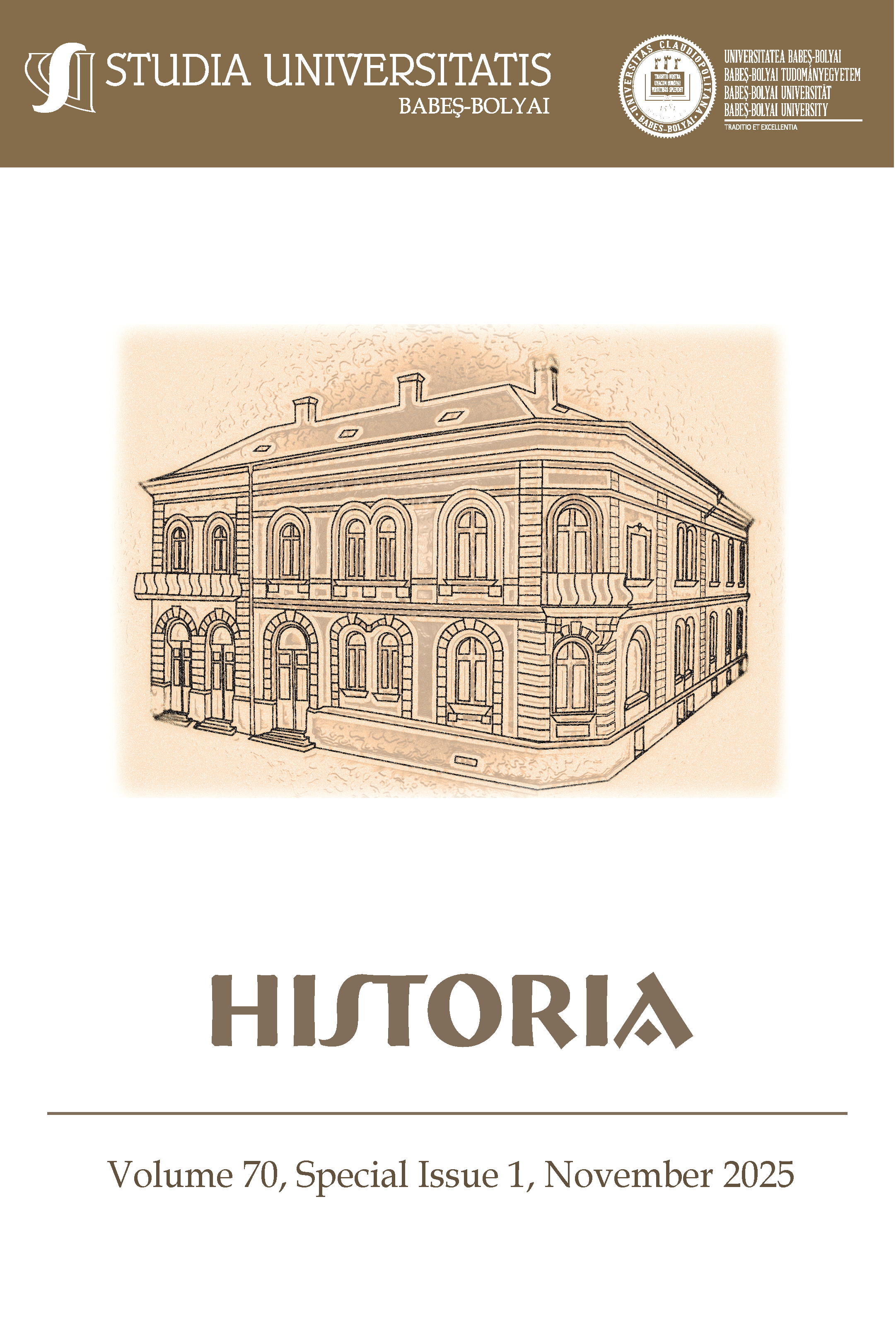Historians and Politics: Hussite Warfare (1419–1434) in Czech Historiography (1850–1960)
DOI:
https://doi.org/10.24193/subbhist.2025.sp.iss.1.06Keywords:
Hussites, Medieval Warfare, Historiography, Political ConvictionsAbstract
The article outlines the historiographical context of the now-standard narrative regarding the genesis of Hussite warfare. František Palacký (1798-1876), the founding father of Czech historiography, formed the core of this narrative by focusing on the role of Jan Žižka of Trocnov (ca. 1360–1424), a genius military commander of the radical Taborite faction of Hussites. Žižka allegedly created an unprecedented way of war based on wagons and early firearms, advancing the art of war. Within the context of this narrative, Palacký also created a dichotomy between the military forces of the progressive Hussites and the conservative “feudal” crusaders. The paper further stresses the role of Czechoslovak Marxist historians of the 1950s, in particular Jan Durdík. The latter evolved Palacký’s thesis by stretching the dichotomy between crusaders and Hussites even further, in accordance with the political convictions of the day. Žižka’s army and other Hussite forces, whose military culture exhibited many commonalities with their enemies, were transformed into heralds of proto-communist ideals. The paper thus concludes that while the traditional narrative on Hussite warfare has its merits, it’s flawed by the politico-ideological motivations of its creators. Concomitantly, a holistic reevaluation of Hussite wars from an unbiased military-historical perspective is still a desideratum.
Rezumat: Articolul prezintă contextul istoriografic al narațiunii standard actuale privind geneza războiului hussit. František Palacký (1798-1876), părintele fondator al istoriografiei cehe a constituit nucleul acestei narațiuni, concentrându-se asupra rolului lui Jan Žižka din Trocnov (c. 1360–1424), un comandant militar al facțiunii radicale taborite a husiților. Žižka ar fi creat o modalitate de război fără precedent, bazată pe căruțe și arme de foc primitive, contribuind la progresul artei războiului. În contextul acestei narațiuni, Palacký a creat, de asemenea, o dihotomie între forțele militare ale husiților progresiști și cruciații conservatori „feudali”. Lucrarea subliniază în continuare rolul istoricilor marxiști cehoslovaci din anii 1950, în special al lui Jan Durdík. Acesta din urmă a dezvoltat teza lui Palacký, extinzând și mai mult dihotomia dintre cruciați și husiți, în conformitate cu convingerile politice ale vremii. Armata lui Žižka și alte forțe hussite, a căror cultură militară prezenta multe similitudini cu cea a inamicilor lor, au fost transformate în vestitori ai idealurilor proto-comuniste. Lucrarea concluzionează astfel că, deși narațiunea tradițională despre războaiele hussite are meritele sale, ea este viciată de motivațiile politico-ideologice ale creatorilor săi. În același timp, o reevaluare holistică a războaielor husite dintr-o perspectivă militar-istorică imparțială rămâne în continuare un deziderat.
Cuvinte cheie: condamnări politice; husiți; istoriografie; război mondial.
Downloads
Published
How to Cite
Issue
Section
License
Copyright (c) 2025 Studia Universitatis Babeș-Bolyai Historia

This work is licensed under a Creative Commons Attribution-NonCommercial-NoDerivatives 4.0 International License.



